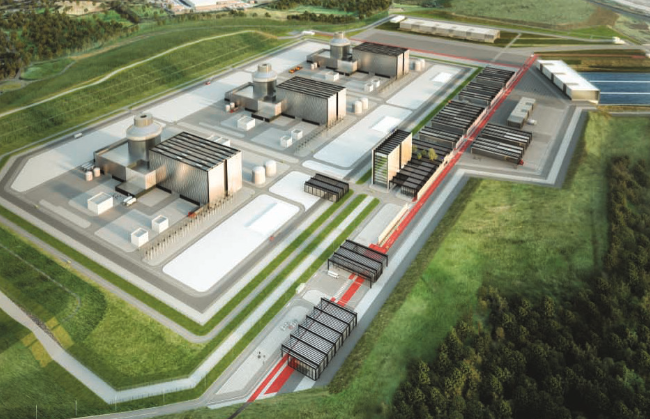Moorside’s £10bn nuclear project delayed beyond 2025
The Moorside nuclear development in Cumbria will be delayed beyond its intended 2025 start date, according to the chief executive of the company behind the scheme.
Nugen head Tom Samson said that the nuclear project’s commissioning, which was originally planned to begin in 2025, would now started “later in the 2020s”.
In an interview with Reuters, Samson added the plant in West Cumbria “could still be up and running before 2030”.
Moorside is being backed by Toshiba, but the company’s nuclear arm Westinghouse went bankrupt earlier this year.
Toshiba’s joint venture partner for the project, French energy firm Engie, pulled out of the project as a result, with Toshiba now on the hunt for a new investor. This also prompted Nugen to undertake a strategic review of the development.
South Korean firm Kepco and China General Nuclear Power Corporation are both interested in investing in the project.
However, both companies are likely to want to use their own reactor design for the project – with options including two small reactors instead of one larger reactor.
Moorside currently plans to use Toshiba’s AP1000 reactor technology on the project, but this could be replaced if a new investor is found.
As a result, it is understood that a process of using a new reactor design could lead to long delays to the project, with any new reactor needing to go through a four-year regulatory process before plans can be approved.
Moorside’s original AP1000 reactor already has regulatory approval.
Sources close to the project suggested this could “essentially put Moorside back to the drawing board”.
Trade union GMB called on the government to confirm its support for Moorside, after Samson revealed that Nugen had “been exploring options for the government to participate in the project”.
GMB senior organiser Chris Jukes said: “This delay is far from a surprise and finally confirms what GMB has been saying for months.
“We welcome the honesty from Nugen and ask why the Government is so silent and failing to show leadership on Moorside.
“Britain needs this vital new infrastructure, and the reliable zero carbon electricity it will produce, and it is the Government’s responsibility to make sure it is built and in a timely manner.”
As well as the nuclear power plant, the Moorside project plans to support infrastructure investment and housing in Cumbria.
Planned infrastructure investments include a major overhaul of stations at Corkickle and Mirehouse, new railway lines including a 285m extension to the St Bees Loop, and a marine off-loading facility.
It is understood that a business case was yet to be finalised for these investments before delays to the project earlier this year.
Nugen has been contacted for comment.




